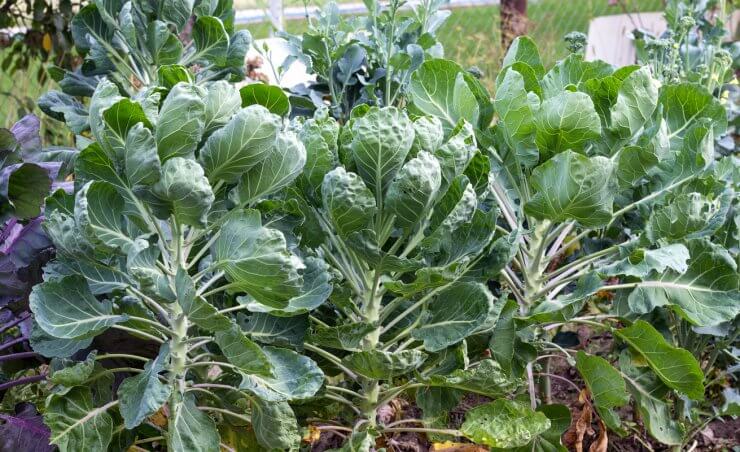
Brussels sprouts grow well when fertilized
Brussels sprouts are heavy feeders; they slurp up all the nitrogen they can from the soil, but it won’t be enough over the course of the growing season unless you supplement the plant’s diet with some additional fertilizer.
Of course, you should start off with rich, fertile soil before seeds or seedlings ever reach the ground; a nitrogen-rich compost mixed into the soil weeks or months ahead of time is ideal. Remember: you don’t have to make your own compost. Even if you have your own compost, you’ll want to check it for nutrients to make sure your Brussels sprouts are getting what they need.
Before you start amending the soil, the best thing is to have your soil tested. If you can’t get a soil test, just go ahead and use a higher nitrogen fertilizer—preferably a timed-release fertilizer that will gradually boost the nitrogen content of the soil without shocking the plant.
Plan to side-dress your Brussels sprouts with fertilizer twice during the growing season. Check your seed packet or seedling label for the recommended timing for the variety you’re growing. In general, you fertilize Brussels sprouts once they’ve grown to be a foot tall, and then again about four weeks later.
Do you fertilize your Brussels sprout plants? What type of fertilizer do you use? How often do you fertilize? Please tell us exactly how and when you fertilize your Brussels sprout plants.


 Previous
Previous

